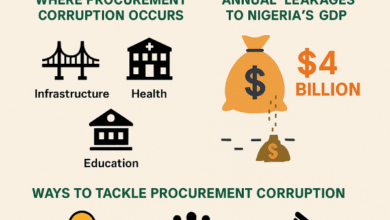NPA MD urges maritime workers to shelve strike against IOCs
 The Maritime Workers Union of Nigeria (MWUN) appear to shelve its planned shut down of operations at all ports and oil terminals in the country, scheduled to start from March 1.
The Maritime Workers Union of Nigeria (MWUN) appear to shelve its planned shut down of operations at all ports and oil terminals in the country, scheduled to start from March 1.
This indication followed a peace meeting hosted by the Managing Director of the Nigerian Ports Authority (NPA), Mr Mohammed Bello-Koko, with the leadership of the union, in Lagos.
This is contained in a statement sent to newsmen in Lagos, on Sunday, signed by Mr Ibrahim Nasiru, General Manager, Corporate and Strategic Communications, NPA.
The NPA MD at the meeting appealed to the union leaders not to deviate from the path of peace and industrial harmony, the union had cultivated over the years.
Bello-Koko admonished that dialogue remained a veritable tool to address every agitation, be it at the workplace or in the larger society.
“MWUN, the umbrella body of port workers in the country, had in February threatened to shut port operations nationwide.
“This was over alleged refusal of the International Oil Companies (IOCs) to allow the stevedoring companies and their workers, who are members of the union, access their platforms, thus denying them wage-earning opportunities as provided by law.
“At the meeting held at the Authority’s head-office, the NPA helmsman reminded the union leaders that shutting down port operations generates several negative ripple effects far beyond the port industry”.
He pointed out that it was very important the ports are kept open for business 24 hours daily, a cardinal mandate of a port administration.
“I expect your union as a critical stakeholder would continue to partner with us to maintain and sustain this mandate,” he said.
Bello-Koko disclosed that the Authority, in conjunction with the Federal Ministry of Transportation (FMoT), was already making efforts to ensure that IOCs allowed appointed stevedores and dockworkers access to their platforms as stipulated by law.
President General of MWUN, Comrade Adewale Adeyanju, while assuring the meeting of the union’s consideration to defer the planned strike, expressed the union’s satisfaction with the intervention by the Koko-led management.
According to him, we commend the NPA as our landlord and parent employer, we are happy with the MD’s intervention and confidence-building words.
“We will consider shelving the planned strike pending the outcome of further meetings.
“We are doing this as a show of respect to your office and in the interest of peace and industrial harmony in our maritime industry” he stated.
In a related development, the NPA MD had entreated customs agents protesting against the new Vehicle Identification Number (VIN) valuation system, introduced by Nigeria Customs Service (NCS), to sheath their swords.
He urged them to embrace dialogue in resolving all their complaints against the new method of computing customs’ tax on imported vehicles.
The NPA MD, who was at the Tin-Can Island Port, last Friday, on a site inspection of some infrastructure projects, explained that any disruption in the supply chain would lead to higher costs.
READ ALSO:https://brandeconomy.com.ng/housing-deficit-fg-set-to-enumerate-empty-houses/
He added that it would lead to longer delivery time for shipments, a situation that reflects negatively on the bottom line of all players involved in port business, including government agencies.
“My appeal to our customs agents and freight forwarders is to engage the NCS rather than result to self-help or take actions that will promote port congestion and all the challenges that come with it.
“As the landlord and technical regulator, we will be working with sister government agencies to ensure Nigerian ports remained business-friendly and globally competitive,” he stressed.
(NAN)











